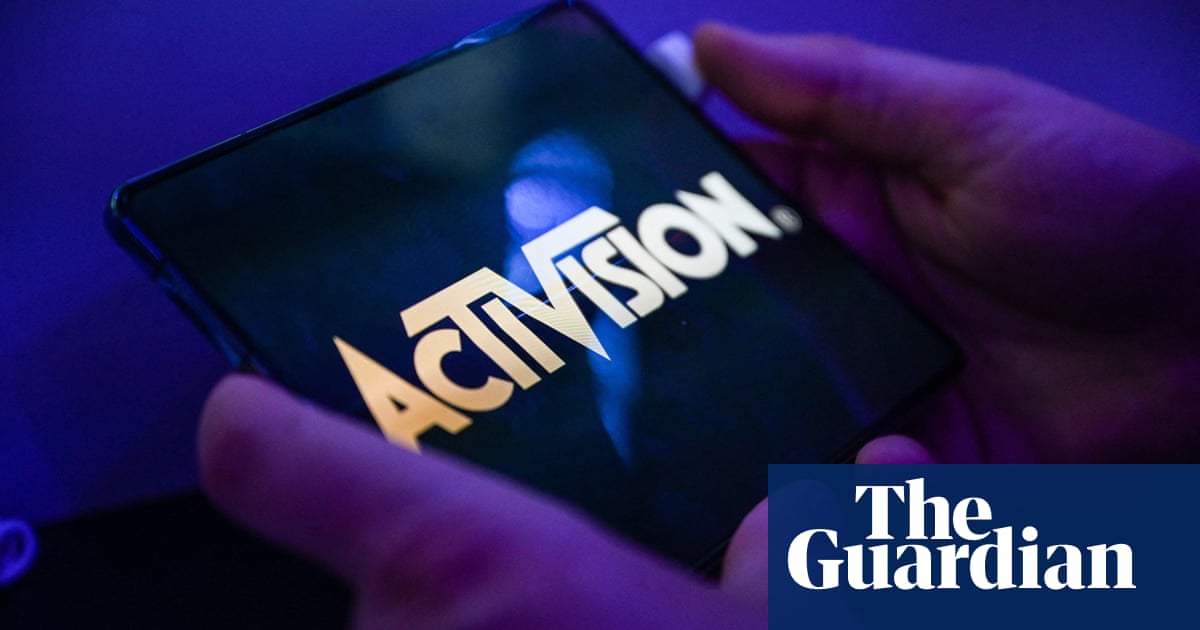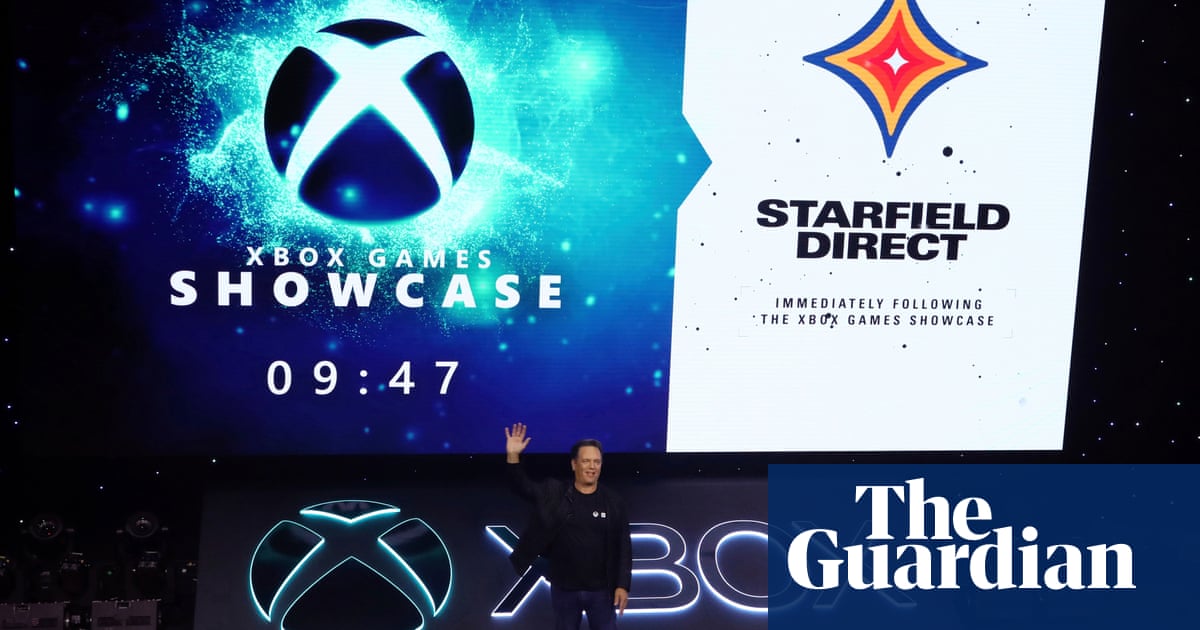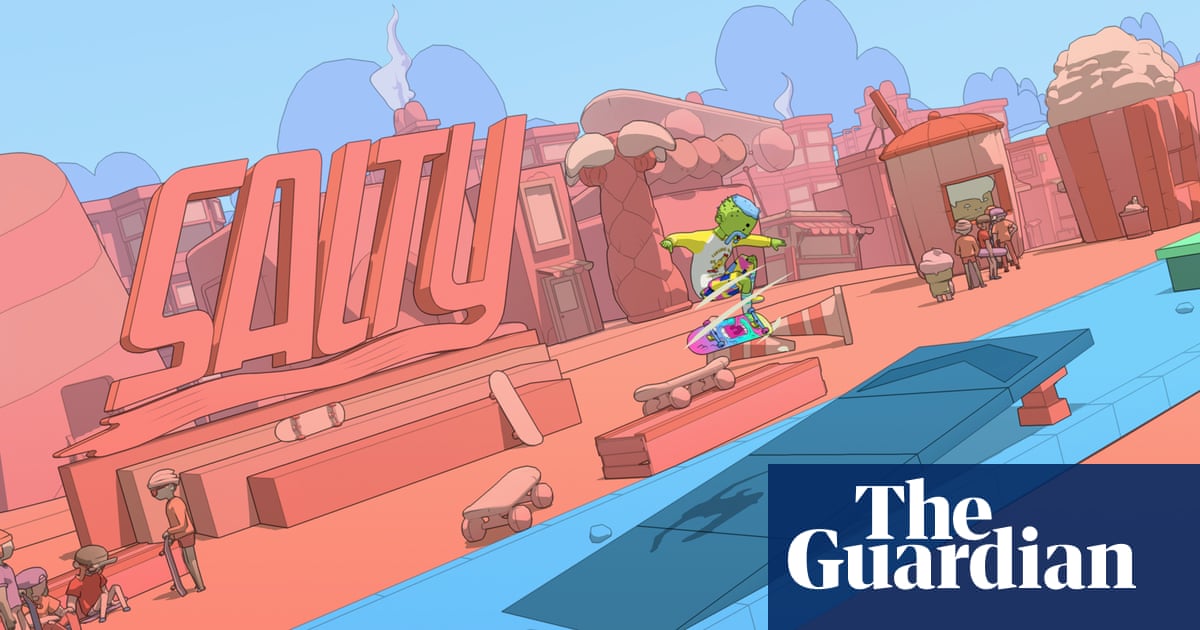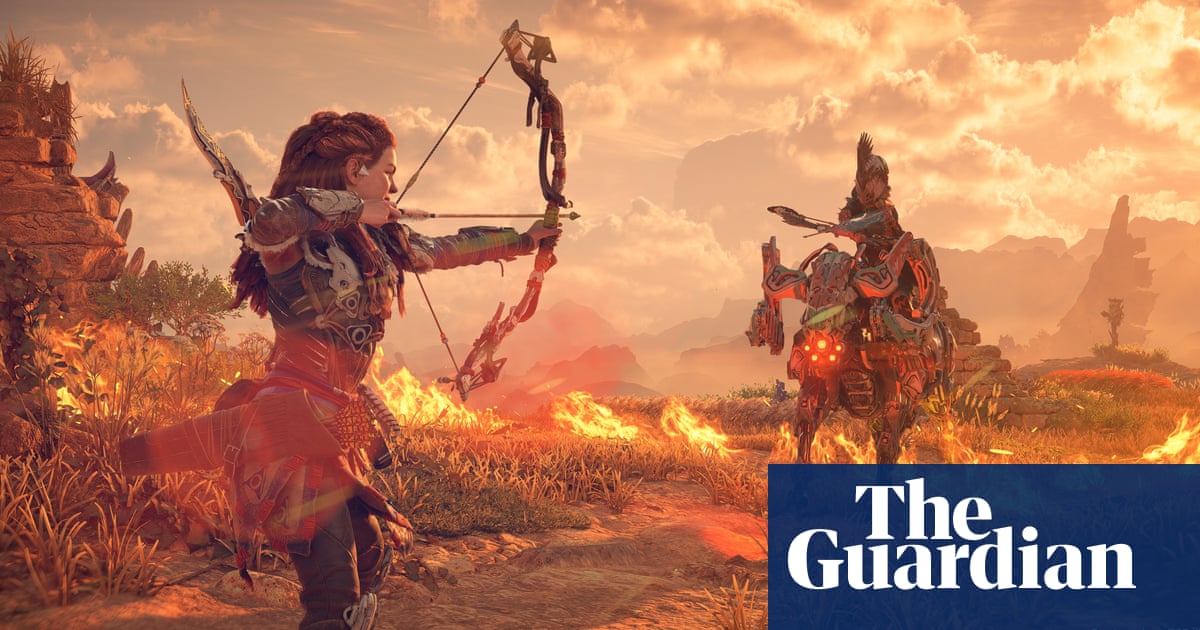
Welcome to Pushing Buttons, the Guardian’s gaming newsletter. If you’d like to receive it in your inbox every week, just pop your email in below – and check your inbox (and spam) for the confirmation email.
Welcome back to Pushing Buttons! Apologies for the late arrival of today’s newsletter; I was unexpectedly stranded with my family for several days last week because of Storm Eunice. Naturally this was the one time in the past five years that I have travelled without a Nintendo Switch, so I couldn’t even turn this into an opportunity to introduce my five-year-old to Mario Kart, a parenting moment I have been looking forward to since he was born. Sadly the last couple of times I’ve tried to introduce him to games have not gone well. The cute Mario Bros Game and Watch that Nintendo released a while back was thrown across the room in a rage after about 90 seconds (“I HATE JUMPING!!!”), and he disliked Pokémon: Let’s Go Pikachu so much that it will no for ever be known in our house as No No Pikachu.
Speaking of Nintendo, it was announced last week that the company is finally shutting the virtual storefronts on its older consoles, 2012’s Wii U and 2011’s 3DS, later this year. Why does this matter? Well – aside from the relatively small number of people who might still want to buy and download games for these consoles, there are plenty of other people who are concerned that many of the 1800-odd games on these digital stores are not available to buy anywhere else. Some of them were made specifically for the consoles in question and never made available on discs or cartridges; others are classic Nintendo games, such as the Zelda: Oracle of Ages/Seasons spin-offs, which are otherwise difficult to get ahold of in their original Game Boy Color forms.
There’s still time to download anything you might want from these old digital storefronts before they close for good, sometime after August. But this points towards a problem that is particularly pronounced in this art form: preservation. If you want to legally play, say, a SNES game from 1993, you have to own the original console and an original cartridge, which can be troublesome enough to track down. But games that were only ever released digitally can simply vanish if the company that made or hosted them goes bust, or decides to stop supporting them. This is particularly pronounced on Apple and Google’s smartphone storefronts: games appear and disappear all the time. Most of us have hazy memories of games on old computers or early consoles that seem to have been lost to time. Imagine what that’ll be like for the kids who grew up playing games on an iPad.
This matters because large swathes of video game history are in permanent danger of being erased. Organisations like the Video Game History Museum go to huge lengths to track down and preserve copies of games, or in-progress code, or artwork and development materials, but the job is enormous, and few of gaming’s big players seem to care that much about the medium’s history. Companies get acquired and their back catalogues get thrown away. I’m still salty about Bookworm Adventure, a fantastic 2007 adventure-scrabble game that EA inexplicably scrubbed from existence after it bought its developer, PopCap.
Inevitably, when there is literally no other way to experience older games, people turn to questionably-legal or straight-up illegal emulation. Copyright laws mean that digitally preserving games in this way is at best extremely complicated – but when companies won’t make the effort to preserve their own history, what are game archivists (or curious retro game fans) supposed to do?
At least Nintendo reliably rereleases its classics on its newer consoles every few years. We have to pay for them again every time, though. I’ve lost count of the number of times I must have bought the original Super Mario Bros on all the different Nintendo consoles I’ve owned since 1995 – though I’m comforted by the fact that I’ve definitely spent nowhere near much as the guy who paid $2m for a sealed copy at auction.
What to play
Full disclosure: I have not played the finished version of Elden Ring, a dark-fantasy collaboration between Dark Souls’ creators at FromSoftware in Japan, and George RR Martin. But I played an in-progress beta version at the tail end of last year, and that was enough to convince me that this game will be a highlight of my year. It’s challenging, unsurprisingly – this studio is well known for its uncompromising approach to game design – but also so intriguing, a crumbling fantasy realm full of brutal creatures to fight and dark secrets to uncover at the ends of overgrown paths. Think Dark Souls meets Zelda: Breath of the Wild and you’re halfway there. It’s out this week, and the reviews will start arriving tomorrow.
Available on: PC, Xbox One/Series S/Series X, PlayStation 4/5
Approximate playtime: 40+ hours
What to read
I have always been rather baffled by Gran Turismo, the rather sterile-looking and fastidiously detailed racing game that has been a PlayStation staple since the 90s. So I was enormously charmed to read Mike Channel’s explanation of how eccentric and appealing it is to its fans. GT is “a surprisingly personal, constantly evolving interrogation of the relationship between humans and the metal boxes they careen around in”, he says, a reflection of the mercurial interests of its intriguing creative director Kazunori Yamauchi – who, I learned from this article, is himself an accomplished racing driver who has participated many times in the Nurburgring 24 Hours endurance race.
Some Wordle fans are starting to lose faith, suspecting that its new owner the New York Times has made unwelcome changes. I guess all things must pass, but has Wordle’s time really come already?
The BBC has investigated the existence of sex games and chatrooms on mega-popular online children’s game Roblox, built by determined rule-breakers. It is of course a law of the internet that people will attempt to make porn out of anything – fellow millennials might remember what went on in the dark corners of similarly sexless 00s chat game Habbo Hotel. Nonetheless, parents should be advised that this stuff does exist on the platform, and that it is extremely difficult to police.
What to click
‘The sprites clearly do not look like actual lemmings’: the inside story of an iconic video game
The 15 best games on Apple Arcade
Total War: Warhammer III review – swords, sorcery and symphonic metal
Question Block
To balance out the enormous open-world games I’ve been recommending for the past couple of weeks, I thought I’d answer this question from reader Lawal Muhammad (hello again!): Given the oft interrupted life of a gamer-parent, which games would you recommend for the time-poor and sleep-deprived?
My memories of the first six months or so with each of my babies have been mostly erased by sleep deprivation, but I do remember that video games got me through a lot of long nights. At that stage I could not cope with ANY stress whatsoever, though, so I stuck to games that exerted absolutely no pressure on me. I played about 60 hours of pleasant farming game Stardew Valley in the middle of the night, because its soothing, predictable daily rhythms were a salve for my tired brain, and absolutely nothing stressful or tragic could possibly happen. I played Breath of the Wild, because it was easy to achieve and save little milestones during a 20-minute baby nap. I played Forza Horizon, because it was the closest thing I could get to a holiday. I played a lot on my phone, especially games that could be finished quickly and would be different every time I played them: sci-fi story-generator Faster than Light, the beautiful interactive novella 80 Days.












